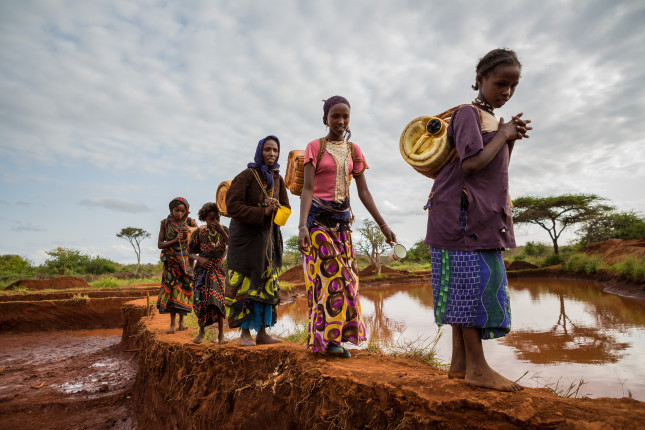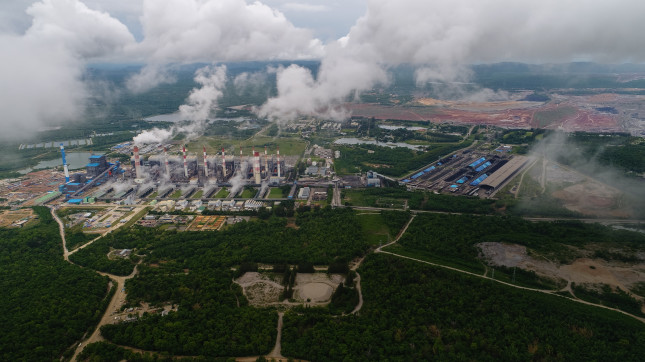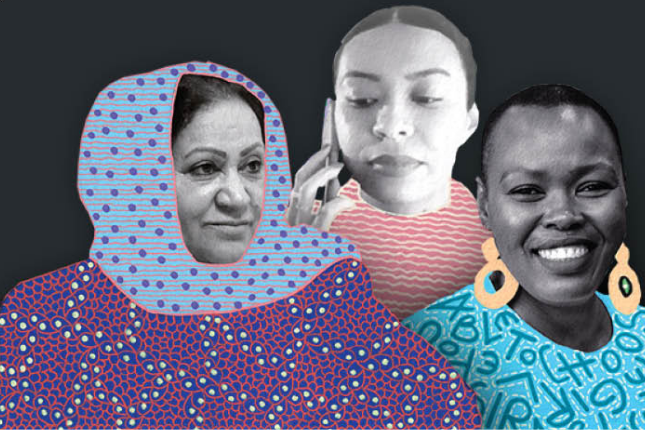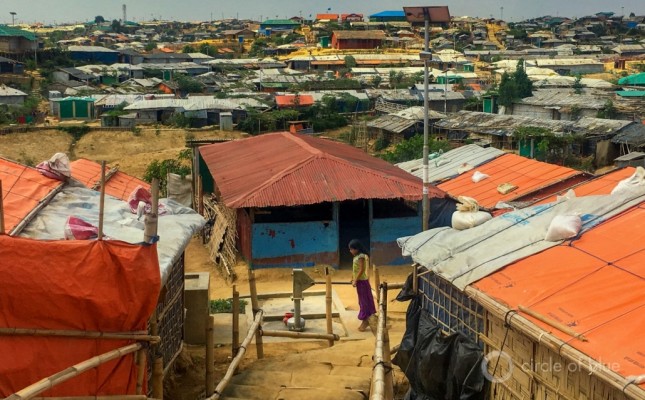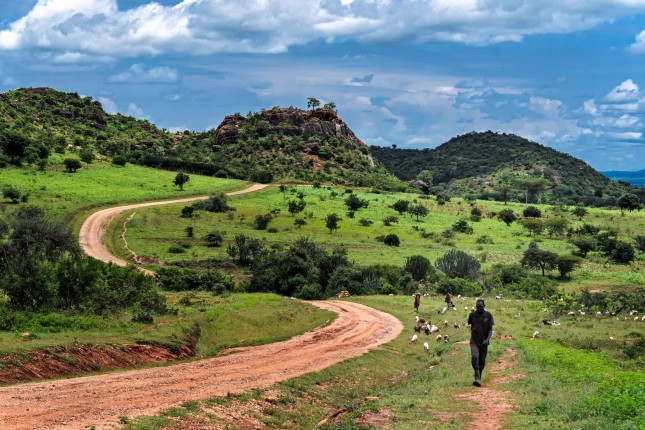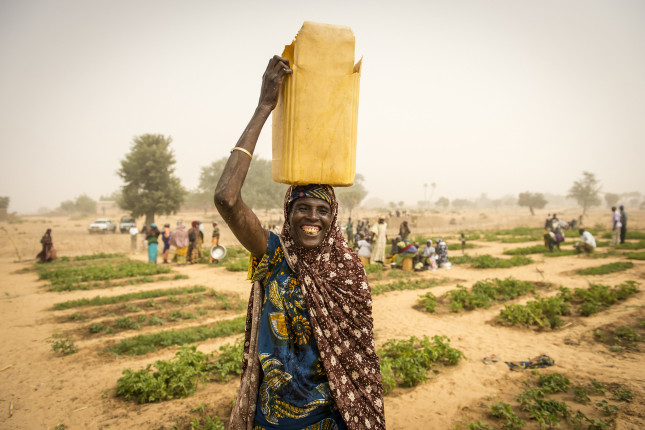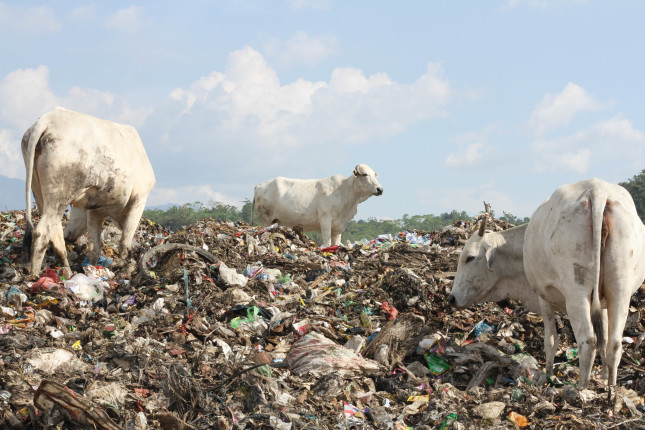-
Towards Better Protecting the Environment in Armed Conflict
›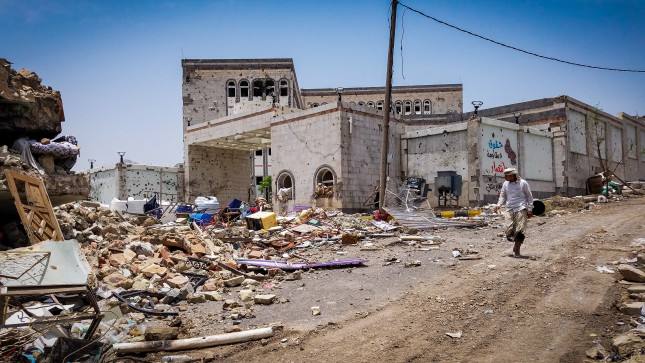
Environmental dimensions of armed conflicts
Years of armed conflict have devastated Yemen’s environment, contributing to one of the worst humanitarian crises in the world. Attacks on water infrastructure cut off thousands of people from access to safe drinking water, exacerbating a cholera outbreak that has caused an estimated 4,000 deaths since April 2017. Fighting also damaged Yemen’s agricultural infrastructure, contributing to the food insecurity of an estimated 16.2 million people.
-
Translating Urgency Into Action on Water, Climate, and Security
›
“We need to devote our full attention to the relationship between water, climate, and security, increase understanding of the issue, and take urgent action,” said Carola van Rijnsoever, Director of Inclusive Green Growth at the Netherlands Ministry of Foreign Affairs, at a recent Hague roundtable on building a transatlantic coalition for climate action on water and security challenges in countries of risk.
-
The Biden Administration Confronts the Climate-Carbon Cleavage
›
Of the many ways in which the 2020 presidential election might reshape American society, its impact on climate policy may well be the most significant. The Biden administration’s ability to move forward with its agenda, however, is greatly constrained by the carbon-climate cleavage that increasingly shapes American legislative politics and electoral competition. The administration has met this challenge with a three-prong strategy intended to bridge this cleavage.
-
My Body, My Voice, My Choice: Launching UNFPA’s 2021 State of World Population Report
›
“As we’re talking, the bodily autonomy of millions of women and girls around the world is still denied,” said Klaus Simoni Pedersen, Acting Director of the Division of Communications and Strategic Partnerships for the United Nations Population Fund (UNFPA) at the recent U.S. launch event of the 2021 UNFPA State of the World Population report, hosted by the Wilson Center and UNFPA. The report, My Body is My Own: Claiming the Right to Autonomy and Self-Determination, examines the global status of women and girls as reflected in their agency and decision-making power.
-
Universal WASH Gains Traction Even as Hand Pumps Lose Ground: Troubled Water Supply Systems in Africa Spur Demand for New Technology
›
With their blocky stamped metal heads and long arms, the India Mark II and Afridev hand water pumps are hardly aesthetically appealing. What matters is their design. That is, how well do they work?
Introduced in the 1980s, manufactured by the millions, and installed in communities across Africa and Asia, the two hand pumps are the most popular tools for lifting water to the surface from rural underground reserves. In that capacity, the two pumps occupy prominent space in the WASH sector’s long-running and formative debate over whether the global campaign is succeeding or slipping in the effort to attain universal access to clean water, sanitation, and hygiene.
-
“Land is Now the Biggest Gun”: Climate Change, Conflict, and the Telling Case of Karamoja, Uganda
›
Whether and how climate change drives conflict has driven considerable debate over the past decade. Yet understandings of climate-conflict remain general, and in many respects, unsettled. A recent assessment of potential future directions for climate-conflict research highlights the need to go beyond generalities and deepen insight into the contextual mechanisms that link climate change to conflict. That type of knowledge requires in-depth studies that trace climate-conflict dynamics in particular places and times. In an article recently published in Climate and Development, I examine how climate change alters conflict outcomes and vulnerability in Karamoja, Uganda. The case offers direct insight into both why the climate-conflict relationship can be so difficult to interpret and also the need to broaden conceptualizations of the climate-conflict relationship.
-
Developing a Shared Narrative on Climate Change, Fragility, and Peacebuilding
›
“Addressing the link between climate, conflict, and environment is a critical piece of the new USG framework for addressing fragility, and, as the Biden administration scales up its efforts to center climate change in its foreign policy and national security agendas, it’s going to be essential to consider the linkages between climate action and opportunities to build peace,” said Joe Hewitt, Vice President at the U.S. Institute of Peace during a recent event co-hosted by the Wilson Center and the U.S. Institute of Peace on the importance of integrating climate change responses, conflict prevention efforts, and peacebuilding.
-
Turning the Tide: How Can Indonesia Close the Loop on Plastic Waste?
›
Indonesia. Crystal blue waters, palm trees swaying in the wind, endless sandy beaches, lush tropical jungles, towering mountains, lakes, rivers, and more; all are images that may come to mind when you think of Indonesia. But like other Asian countries, Indonesia’s booming development and increased consumption have generated an immense amount of waste, particularly single-use plastics that are leaking into the ocean.
Showing posts from category *Main.


